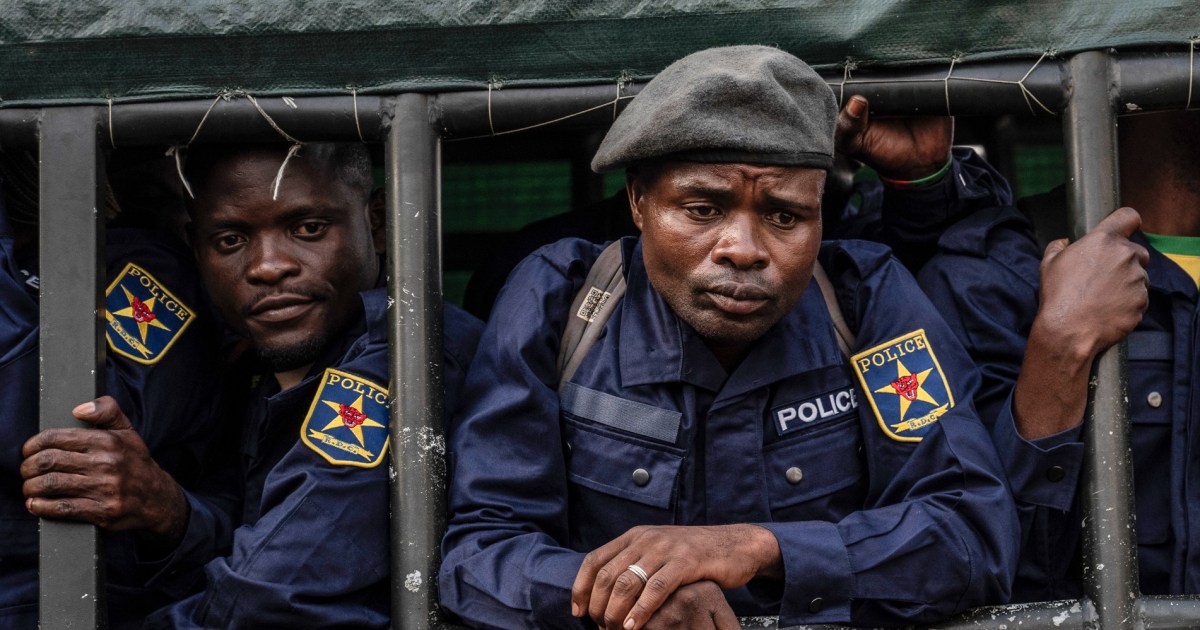In a significant development for peace in Central Africa, the Democratic Republic of Congo (DRC) and the Rwanda-backed M23 rebels have signed a landmark declaration in Qatar aimed at establishing a permanent
Did You Know
Your taste buds have a lifespan of about 10 to 14 days, after which they are replaced.
?
AD
ceasefire. This agreement marks a hopeful turning point in a region that has suffered from decades of violence characterized by ethnic strife and the scramble for rich mineral resources. The commitment to a peaceful resolution comes amidst pressing humanitarian challenges, with thousands killed in ongoing conflict this year alone.
Key provisions of the newly reached accord include a comprehensive peace agreement set to be finalized no later than August 18. Under this framework, the M23 rebels have pledged to withdraw from territories they currently control, thereby paving the way for the restoration of state authority in regions that have long been under insurgent influence. Additionally, provisions for prisoner exchanges are intended to build trust between the conflicting parties, reflecting a genuine desire for reconciliation in a landscape marked by deep-rooted animosities.
The efforts have been significantly bolstered by Qatari mediation, illustrating the increasing role of international diplomacy in addressing complex regional conflicts. As the United Nations has labeled the ongoing strife in eastern Congo as one of the most protracted and serious humanitarian crises, the significance of this ceasefire cannot be overlooked. The agreement not only signals the possibility of a more stable future for the DRC but also showcases global recognition of the need to foster lasting peace in an area fraught with instability and suffering.
Q&A (Auto-generated by AI)
What are the causes of the conflict in Congo?
The conflict in eastern Congo is primarily driven by ethnic tensions, competition for control over rich mineral resources, and historical grievances. The region has been plagued by violence involving various armed groups, notably the M23 rebels, who claim to protect the interests of the Tutsi ethnic group. The influx of refugees and the involvement of neighboring countries, particularly Rwanda, have further complicated the situation, leading to a cycle of violence and instability.
How does Rwanda influence the rebels in Congo?
Rwanda has been accused of supporting the M23 rebels in eastern Congo, providing them with military and logistical support. This influence stems from Rwanda's historical ties to the Tutsi population in Congo and its strategic interests in controlling the mineral-rich regions. Rwanda's involvement is often framed as a response to security threats from armed groups operating in eastern Congo that have targeted Rwandan territory.
What is the significance of Qatar's mediation?
Qatar's mediation in the Congo conflict is significant as it highlights the role of neutral third-party nations in resolving complex geopolitical issues. By facilitating dialogue between the Congolese government and the M23 rebels, Qatar aims to foster a peaceful resolution to decades of violence. This mediation effort reflects Qatar's growing influence in international diplomacy, particularly in conflict resolution across Africa and the Middle East.
What are the terms of the ceasefire agreement?
The ceasefire agreement signed by Congo and the M23 rebels includes commitments to a permanent ceasefire and the establishment of a comprehensive peace agreement within a month. Key terms involve the withdrawal of M23 forces from seized territories and provisions for restoring state authority in areas controlled by the rebels. The agreement aims to build trust between the parties, including the exchange of prisoners and detainees.
How has this conflict impacted local communities?
The ongoing conflict in eastern Congo has severely impacted local communities, leading to widespread displacement, loss of lives, and destruction of infrastructure. Thousands of civilians have been killed, and many more have been forced to flee their homes, resulting in a humanitarian crisis. Access to basic services such as healthcare, education, and food has been compromised, exacerbating the suffering of the population in the region.













